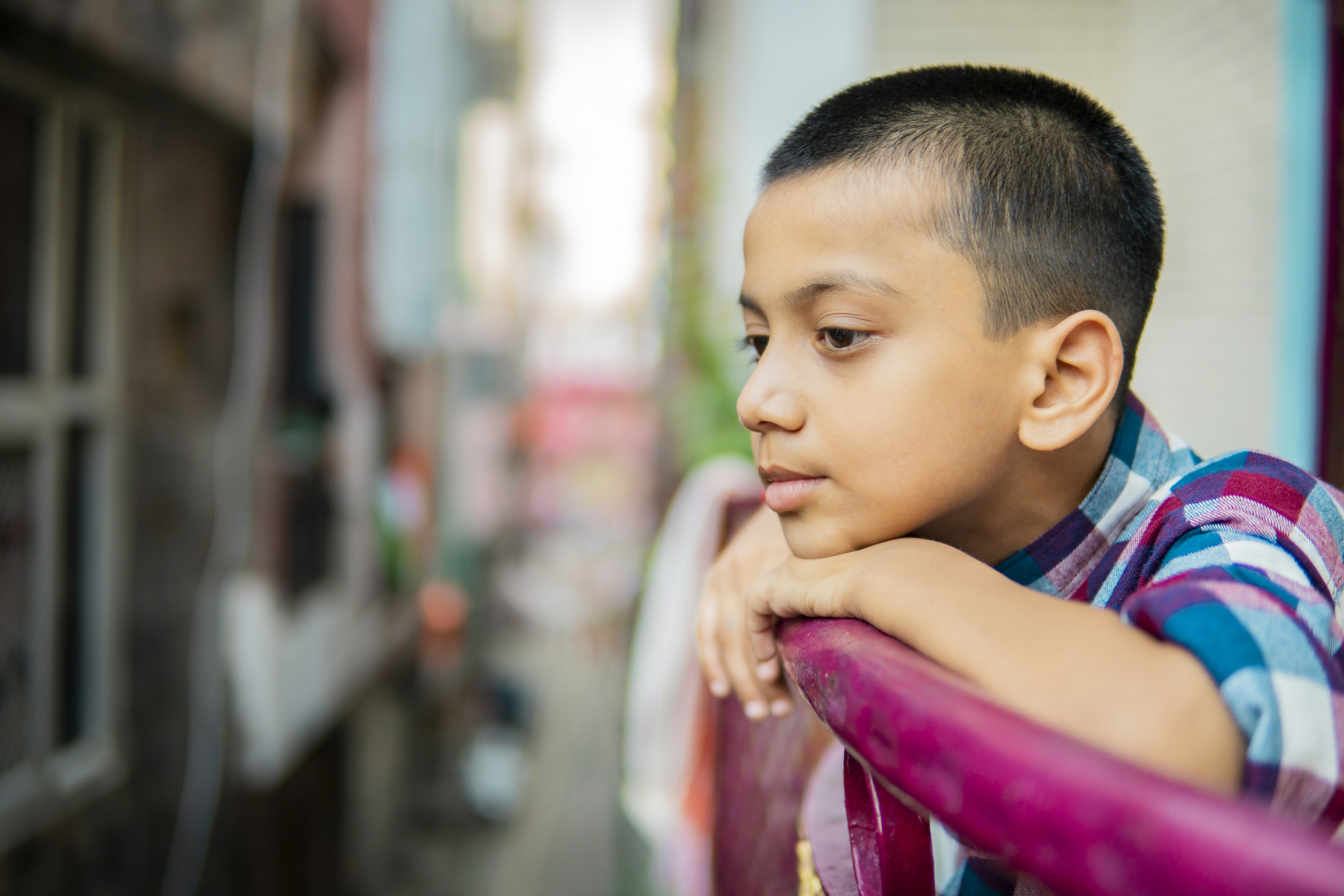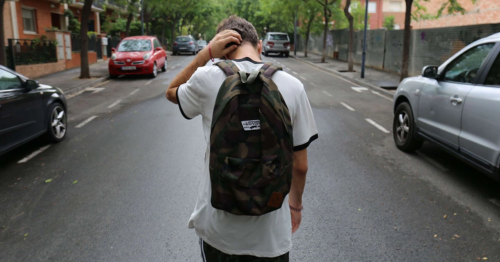
Table of Contents
How to Help A Child Living With Depression, According to Therapists

Written By: Sarah Fielding

Clinically Reviewed By: Courtney Way
August 8, 2025
5 min.
Here are expert-approved tips for helping a child living with depression.
Learn more about our Clinical Review Process
Table of Contents
It’s hard to know exactly what’s going on in a child’s mind, so when they act out or isolate, it can be tough for adults, even their parents, to know why. In some cases, symptoms like these, along with a low mood or serious suicidal thoughts, can be indicative of a depressive disorder.
Childhood depression is not uncommon in the United States. According to the most recent data from the Substance Abuse and Mental Health Services Administration, about one in seven (15.4%) adolescents ages 12 to 17 experienced a major depressive episode in 2024 — and for about one in 10, the episode caused problems doing chores, maintaining good grades, or getting along with others. Comparatively, one in 12 adults (8.2%) experienced a major depressive episode during the same time.
Read on to learn more about how to support a child living with depression and treatment options that may be able to help them.

Age-appropriate treatment for children with depression
We offer specialized programming for kids ages 8+ dealing with serious mental health conditions, including depression.
What are the signs of depression in a child?
Children’s experience of living with depression can vary from that of adults. For instance, children “may not have the language to describe how they’re feeling,” says Charlie Health Contemplative Practitioner Tairesha “Sunflower” Flemister, LMSW. This might leave them potentially more isolated and in pain. Instead, she notes that children might act defiant or withdraw.
According to the Centers for Disease Control and Prevention (CDC), signs of depression in children include:
- Feeling sad, hopeless, or irritable
- Not wanting to do or enjoy doing fun things
- Changes in eating or sleep patterns
- Feeling tired and sluggish or tense and restless
- Struggling to pay attention
- Feeling worthless, useless, or guilty
- Engaging in self-injury or self-destructive behavior
In contrast, adults are more likely to have a vocabulary to express their experiences with depression and low mood. They might present with more obvious external symptoms, compared to children who might “act out or show behavioral or emotional symptoms beyond low mood,” says Charlie Health Licensed Creative Arts Therapist Courtney Way, MA, LCAT.
How to talk to a child about depression
In some cases, a young person might understand something is wrong — especially adolescents. They might come to you, or another trusted adult, to discuss their experience with depression. But, if they aren’t volunteering it, you might have to broach a conversation about depression.
The key here is to understand that this is their experience. They are the one living with depression or depressive symptoms and best understand how they’re feeling. It can be all too easy as an adult to appear as if you’re talking down to a child. Fight every instinct to do so.
Instead, Way and Flemister recommend keeping specific things in mind when talking to your child about depression, such as:
- Using open-ended questions
- Don’t come with assumptions
- Choosing a safe, private setting where they feel comfortable
- Refrain from passing judgment
- Validate their experience
- Reassure them that they aren’t in trouble

You might be tempted not to rock the boat and see if things change. But Way and Flemister emphasize that early intervention is critical for improving their well-being, rather than sinking into a deeper depression. Flemister notes that a person living with unmanaged depression can face a negative impact on their “learning, relationships, and self-esteem.”
How to help a child living with depression
So, after you talk, the question is: How to help a child with depression? You can be an incredible form of support to the young people in your life. “Remember that helping a child with depression is not about ‘fixing’ them, but walking alongside them with consistent care, professional guidance, and unconditional acceptance,” says Flemister.
1. Maintain a safe space for communication
Let your child know that the door is always open, even if they don’t want to dive into their experience at the moment. Be a safe space for your child to talk about their adverse mental health without fear of judgment.
2. Keep healthy routines
As best as you can, try to keep a daily routine your child can rely on. Way and Flemister recommend prioritizing sleep, regular nutrition, and some sort of movement. Even taking them for a quick walk around the block or through a park can make a big difference for their mood.
3. Model emotional regulation
Children can absorb the actions you take. Show them how you engage in coping mechanisms, such as deep breathing, journaling, or talking through something difficult, says Flemister.
4. Lighten their stress where possible
Life can be overwhelming enough without adding depressive symptoms into the mix. Think about ways in which you can lessen your child’s stress — and ask them what would help. Lowering the number of things or situations that stress them out can give them more mental space to cope with depression.
5. Get support
You don’t need to deal with this all on your own. There are trained professionals who can help you, such as a child’s guidance counselor at school, a pediatrician, or an outside therapist. For the latter, look for an individual who has experience working with children around similar mental health conditions.
A mental health professional trained in adolescent psychology or family therapy can also provide treatment options for clinical depression, such as antidepressant medication, cognitive behavioral therapy (CBT), and coping skills. They can also offer support if your child is experiencing another mental health disorder, such as an anxiety disorder or bipolar disorder.

How Charlie Health can help
If you or a young person in your life is struggling with depression, Charlie Health is here to help. Charlie Health’s virtual Intensive Outpatient Program (IOP) provides more than once-weekly mental health treatment for dealing with serious mental health conditions, including depression. Our expert clinicians incorporate evidence-based therapies into individual counseling, family therapy, and group sessions. With treatment, managing depression is possible. Fill out the form below or give us a call to start healing today.
References
https://www.cdc.gov/children-mental-health/about/about-anxiety-and-depression-in-children.html
https://www.samhsa.gov/data/data-we-collect/nsduh-national-survey-drug-use-and-health/national-releases




